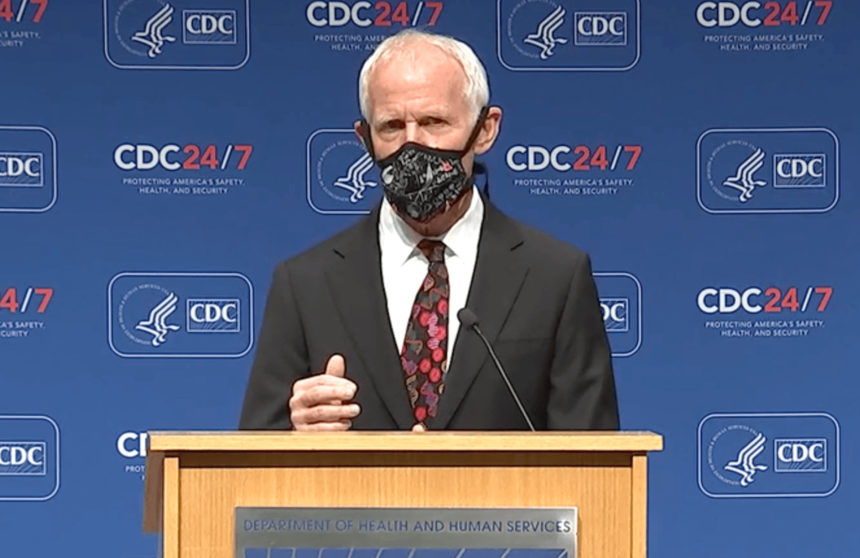
A COVID-19 vaccine should be available for assisted living community, independent living community and nursing home residents and staff members by December or January, federal officials said Wednesday.
“We anticipate that initially, the vaccine will be available in a limited supply. And when the supply of vaccine is limited, our efforts to vaccinate may need to focus on those who are at highest risk of severe disease as well as those critical to the response, including those who provide care to people in the healthcare system,” Jay Butler, M.D., deputy director for infectious diseases at the Centers for Disease Control and Prevention, said at a press conference held at the CDC headquarters in Atlanta and streamed online. “People at risk include those in long-term care facilities like nursing homes and assisted living facilities as well as independent living facilities,” he added.
Butler said that “it’s reasonable to expect” that one or two vaccine products will be available by the end of the year. Secretary for Health and Human Services Alex Azar provided a more detailed expected timeline for administration.
“We expect that we would have, by the end of this year, enough vaccine that is [Food and Drug Administration]-authorized to be able to vaccinate … the most vulnerable individuals,” Azar said. “Then by the end of January, we expect we’d have enough to vaccinate all seniors as well as our healthcare workers and first responders. And by the end of March to early April, enough vaccine for all Americans who would want to take a vaccine.”
The federal government has investments or contracts related to six vaccine products that are being manufactured in advance of the completion of clinical trials so that they can be administered quickly should FDA authorization occur, Azar said.
“Thanks to how we designed Operation Warp Speed, if and when the FDA gives the go-ahead for these therapeutic and vaccine products, we will have supplies already manufactured and ready for distribution,” he said. If a vaccine trial is not successful or the vaccine is not approved by the FDA, then it ultimately would not be administered, Butler said.
Career scientists at the FDA will make the decision about whether to authorize a vaccine after four previous steps that include a trial meeting statistical endpoints specified in advance by the drug company, with meeting of the endpoints confirmed by an independent safety and monitoring board; another independent process by the drug companies; evaluations by the FDA; and an FDA advisory committee meeting that will be streamed online for anyone who wants to attend.
“The American people should feel very reassured by the process that is established here,” Azar said.
Butler referenced the Pharmacy Partnership for Long-Term Care Program announced Friday, which senior living and care operators could opt in to as of Monday. The program will enable long-term care residents and staff members to be vaccinated against COVID-19 free of charge to them when a vaccine becomes available.
“Long-term care facilities will have the option of partnering with CVS and Walgreens, whose combined national footprint will allow most facilities nationwide to opt in to this program,” Butler said, noting that the drugstore chains will provide the vaccinations as well as handle the required reporting.
Until a vaccine is available, however, Azar said, “We have to take steps that can keep ourselves, our families and our communities safe. Those are the three Ws — wash your hands, watch your distance, wear your face covering when you can’t watch your distance — and avoid settings where you can’t do those things.”
For additional coverage of the press conference, see the McKnight’s Clinical Daily.

